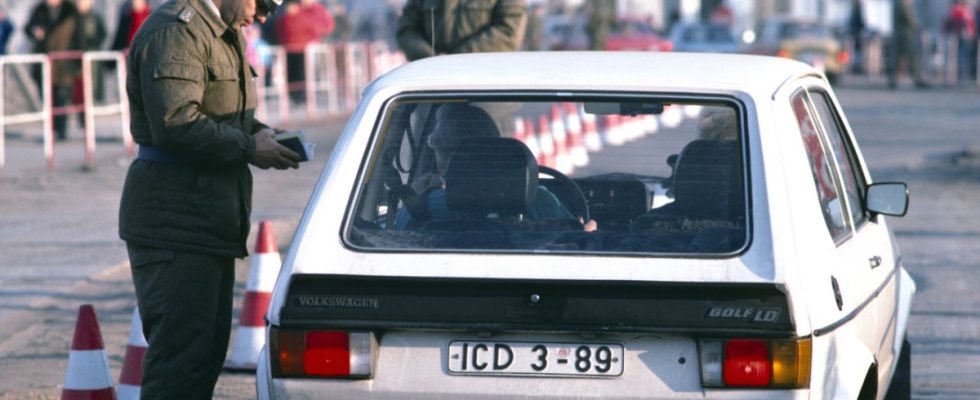Towards the end of Eva Sichelschmidt’s novel, when the family catastrophe is complete and her homelessness is finally sealed, the narrator of this story reads five words on a newspaper stand: “The wall has fallen.” And she suspects: “It must be a metaphor.”
It’s a popular theme in stories about the late 1980s when the hero of the novel doesn’t notice, or only notices briefly, that the border to the GDR is suddenly open. But Eva Sichelschmidt’s “transit mouse”, as the first-person narrator is called by her West Berlin friends, has to swallow so much private grief, including the oppressive tragedy of the loss of her homeland, that world events are of little importance.
The heaviness of one’s origins weighs on the frivolity of everyday life
Eva Sichelschmidt has already begun to tell the story of her family in the extensive, much-praised novel “Until One Cries”, a desolate, fateful Buddenbrooksiade from the green edge of the Ruhr area. In “Transitmaus”, the narrator, daughter of a once successful manufacturer of agricultural equipment, manages to leave her parents’, or rather father’s, declining house, because her mother died early. A friend works in West Berlin, and with the golf and little money she takes the transit route to the walled island.
The harassment by the cruel people’s police is part of the travel and memory culture of every West German who traveled to Kreuzberg or Schöneberg back then. Eva Sichelschmidt tells this story of departure and escape from the perspective of that young, already pretty troubled girl. The father, a depressed, aging man, has brought the obscure “family friend” Uwe into the family, whose household is only held together by the solid housekeeper Mrs. Schmidt.
Eva Sichelschmidt: Transit mouse. Novel. Rowohlt, Hamburg 2023. 297 pages, 24 euros.
(Photo: Rowohlt Verlag)
The daughter got her professional tools from the gnarled seamstress Eleftheria Prodromidis; She will later sew suits made of denim for the Schluffis in Berlin, an innovation! Contact with the father becomes fragile as soon as the daughter becomes at home in the sociotope of West Berlin’s lumpen bohemians. Her boyfriend becomes Falk, a guy who somehow does crooked business. But what’s wrong and what was wrong in Berlin in those years when you might occasionally need a non-binding job for the daily struggle for love, white wine and bags?
The narrator finds it difficult to come to terms with the precarious hedonism and laissez-faire of her new friends; life seems too carefree and indifferent to her, and the esoteric relationship philosophies of the beautiful Claudius, with whom the young woman falls in love, are too callous to eventually become boring to be abandoned by him. Because the frivolity of everyday life is weighed down by the gravity of one’s origins, the destroyed trust, the sadness for the increasingly decaying house in the Ruhr area, which is now ruled by a screaming housekeeper with an undetermined name.
Added to this is the rejection of her love by her father, who initially pays her debts, but then falls into drunkenness and dementia before spending his last hours in the closed ward of the psychiatric ward, which was popularly called the insane asylum back then: “It’s too bad, that you always took yourself with you wherever you went.” The burden of somehow desolate youth on the outskirts of town, an indefinable memory of a French kiss from her father (was there something there or is memory tricking her?), the gradual decline of the family business – all of this tempers the narrative tone in Eva Sichelschmidt’s story, which remains pretty blunt, but at the same time weaves a dark thread into this rapid journey through the Saturnalia of the old Federal Republic.

